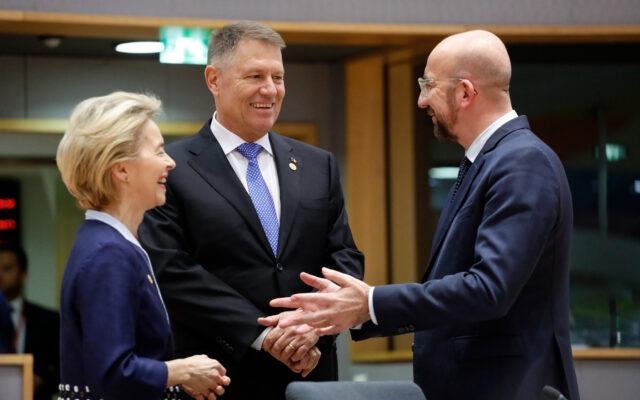
Romania and Bulgaria to join Schengen zone in January 2025, ending border checks
The EU’s Justice and Home Affairs Council (JAI) approved the full accession of Romania and Bulgaria to the Schengen Area for land borders, effective January 1, 2025, according to a European Commission statement released on Thursday morning in Brussels.
The Hungarian Presidency of the EU included this decision on the agenda of the Justice and Home Affairs Council meeting on December 12. This decision finalizes the date for removing land border controls for individuals between Romania, Bulgaria, and the rest of the Schengen Area.
On November 27, 2024, the Permanent Representatives Committee (COREPER) agreed on Romania’s accession to the Schengen Area, including its land borders, effective January 2025. Internal air and sea border checks for Bulgaria and Romania were lifted as of March 31, 2024.
Other topics on the JAI Council agenda include law enforcement IT systems, asylum and migration, internal security, strategic guidelines, and combating child sexual abuse, as reported by the EU Council’s website.
Hungary proposed the Schengen accession of Romania and Bulgaria at the December 12, 2024, JAI meeting. This followed an informal meeting on November 22 between the interior ministers of Romania, Bulgaria, Hungary, and Austria in Budapest. On December 9, Romanian Interior Minister Cătălin Predoiu held a video conference with Hungarian Interior Minister Sándor Pintér to prepare for the JAI meeting.
According to a Romanian Ministry of Internal Affairs (MAI) statement, Minister Predoiu outlined measures under implementation to prepare for the second phase of accession—Schengen entry with land borders. The Hungarian authorities also discussed targeted checks at their shared border with Romania during the holiday season, in line with EU legislation.
Minister Predoiu expressed gratitude for Hungary’s „consistent” and „active” support during discussions.
The JAI ministers also reviewed the general state of the Schengen Area and exchanged views on implementing the Council’s annual priorities. A significant focus was on enhancing security through digitalization.
In terms of law enforcement IT systems, the European Commission and EU-LISA (the EU agency managing IT systems for security and justice) informed ministers about the Entry/Exit System (EES), an automated database for recording third-country nationals entering the EU for short stays. The system involves scanning fingerprints or taking photographs during initial border crossings and storing these details digitally.
The Council discussed updates on the EU migration and asylum pact, a legislative package adopted in May 2024. Member states and the Commission are preparing for the legislation’s application starting June 2026. The pact aims to manage arrivals more effectively, streamline procedures, and ensure a fair distribution of responsibilities across the EU.
During a working lunch, ministers discussed the external dimension of migration challenges.
The advisory council on intelligence presented the current threat landscape, followed by a Hungarian Presidency report on counter-narcotics efforts and organized crime. The ministers exchanged views on a high-level group’s final report about data access for effective law enforcement.
The JAI Council previously welcomed 42 recommendations from this group at its June 2024 meeting.
The Hungarian Presidency also briefed ministers on strategic guidelines for legislative and operational planning in the freedom, security, and justice domains. These guidelines help shape EU policy and provide a framework for implementing the EU’s 2024–2029 Strategic Agenda.
The Hungarian Presidency aimed for a general approach (common member state position) on legislation to combat online child sexual abuse. This legislation would mandate internet companies to report detected online child abuse to authorities. The EU also plans to establish a specialized center to support authorities responding to abuse reports and sharing expertise on prevention and victim assistance.
The JAI Council, one of the EU’s ten Council formations, addresses justice, home affairs, migration, border management, and police cooperation. While member state ministers lead discussions, non-EU Schengen countries like Norway, Iceland, Liechtenstein, and Switzerland also participate in related matters.
The Council functions alongside the European Parliament, holding legislative and budgetary authority. Its decisions are prepared by COREPER and specialized committees.
In the October 2024 JAI meeting, Hungary reported on Bulgaria and Romania’s progress in fully implementing Schengen regulations, following the removal of air and sea border controls in March 2024.
Urmărește mai jos producțiile video ale G4Media:

Donează lunar pentru susținerea proiectului G4Media
Donează suma dorită pentru susținerea proiectului G4Media
CONT LEI: RO89RZBR0000060019874867
Deschis la Raiffeisen Bank
